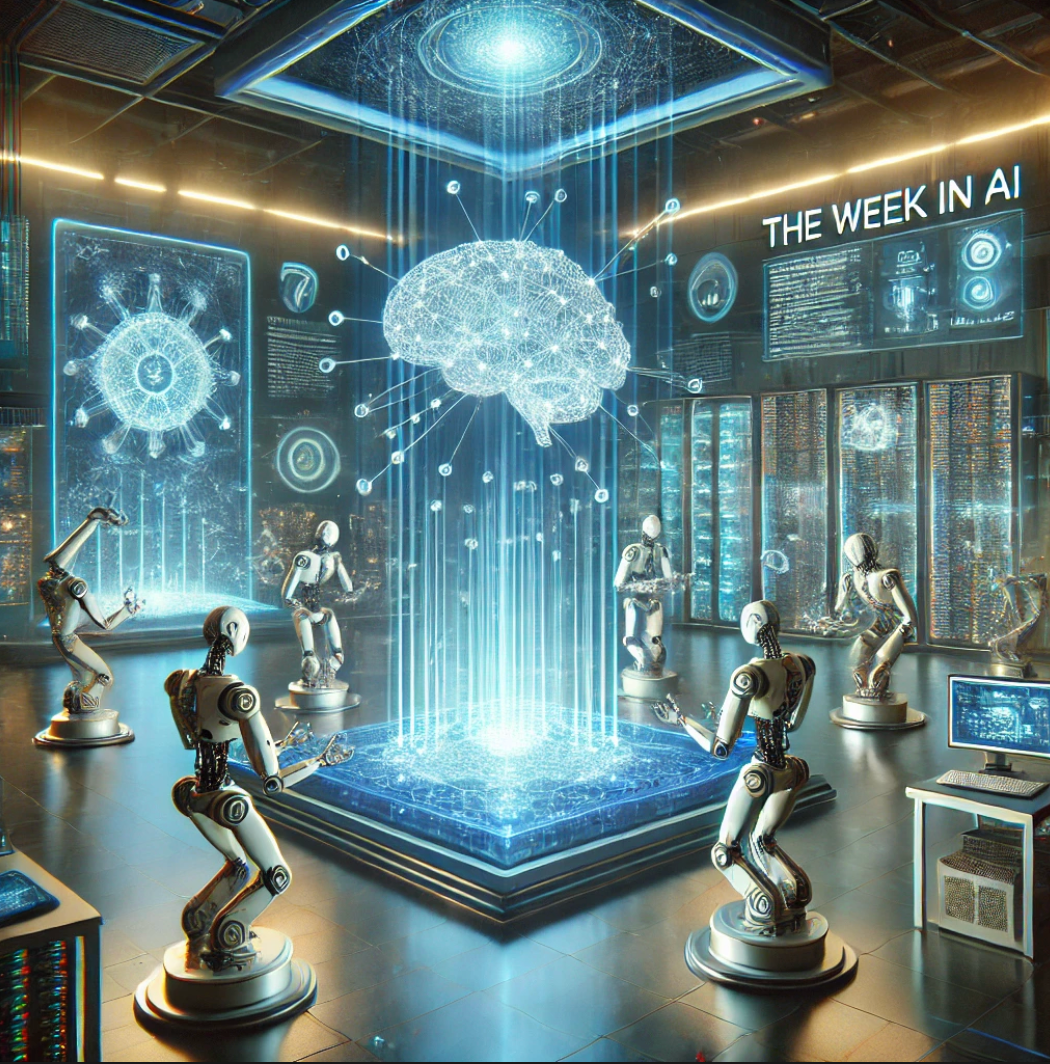From AI-Powered Law Clerks to Sentient Sentience Debates
This Week in AI: From AI-Powered Law Clerks to Sentient Sentience Debates
The whirlwind of AI innovation continues! This week saw advancements in various sectors, pushing the boundaries of what AI can achieve and sparking discussions about its ethical implications. Let's delve into the top 5 AI news stories that grabbed our attention.
1. AI Assists Lawyers: Legal Research Gets a Boost with AI-Powered Tools
The legal profession is notoriously time-consuming and complex. This week, AI emerged as a powerful tool for legal professionals, streamlining research and case preparation.
Here's how AI is revolutionizing legal research:
- Smart Legal Research Assistants: Imagine a virtual assistant that can scan vast legal databases, analyze case law, and identify relevant precedents based on your specific case details. These AI-powered research assistants can significantly reduce research time for lawyers, allowing them to focus on strategy and client service.
- Contract Review and Analysis: AI algorithms can now analyze contracts with impressive accuracy, identifying potential risks and clauses that require negotiation. This can save lawyers valuable time and ensure contracts are airtight and protect their clients' interests.
- Predictive Legal Analytics: AI can analyze historical data to predict the likelihood of winning a case based on similar legal precedents. This information can be invaluable for lawyers when developing litigation strategies and advising clients.
These AI-powered tools are not meant to replace lawyers, but rather to augment their expertise and free them from time-consuming tasks. This allows them to focus on building stronger client relationships and providing strategic legal guidance.
2. AI Makes Strides in Customer Service: Chatbots Go Beyond Simple Scripts
Customer service interactions can be frustrating for both customers and businesses. This week, advancements in conversational AI offered a glimpse into the future of customer service, with chatbots that can handle complex inquiries and even express empathy.
Here's how AI-powered chatbots are changing customer service:
- Understanding Context and Intent: Gone are the days of frustratingly scripted chatbot interactions. These new chatbots can analyze the context of a conversation and understand the customer's intent, allowing them to provide more nuanced and helpful responses.
- Emotional Intelligence Integration: AI can now analyze sentiment in a customer's voice or text messages, allowing the chatbot to adjust its tone and even express empathy. Imagine a chatbot that can identify frustration and apologize for a mistake, improving the overall customer experience.
- 24/7 Availability and Multilingual Support: AI chatbots can offer 24/7 customer support, addressing inquiries regardless of time zone. Additionally, some chatbots can translate conversations in real-time, allowing businesses to cater to a global customer base.
AI-powered chatbots offer a cost-effective and efficient way to provide customer service, while also offering the potential for more personalized and empathetic interactions.

3. AI Expedites Scientific Discovery: From Drug Development to Material Science
The realm of scientific research is vast and complex. This week, AI emerged as a powerful tool for scientists, accelerating the pace of discovery across various fields.
Here's a glimpse into how AI is transforming scientific research:
- Drug Discovery Gets a Boost: We mentioned AI's role in drug discovery last week, but its applications continue to expand. AI can now analyze vast datasets of genetic information, protein structures, and existing medications to identify potential drug targets and simulate their interactions with the human body. This significantly reduces the time and cost associated with traditional drug development.
- Material Science Advancements: Developing new materials with specific properties is a time-consuming process. AI can analyze vast databases of existing materials and their properties, accelerating the discovery of new materials with desired characteristics. This could lead to breakthroughs in areas like clean energy, sustainable construction, and advanced electronics.
- Personalized Medicine Takes Center Stage: With the help of AI, researchers can analyze individual patient data to develop personalized treatment plans and predict how patients might respond to different medications. This paves the way for a future of precision medicine, tailoring treatments to each patient's unique genetic makeup.
AI is not a replacement for scientific expertise, but rather a powerful tool that can empower researchers to analyze vast amounts of data, identify hidden patterns, and accelerate the pace of scientific discovery.
4. The ability of AI to create hyperrealistic videos, known as deepfakes
The ability of AI to create hyperrealistic videos, known as deepfakes, has the potential to be a powerful tool for entertainment and social commentary. However, this technology also raises significant ethical concerns.
Here's a look at the ethical considerations surrounding deepfakes:
- The Spread of Misinformation: Deepfakes can be used to create highly convincing fake videos that could be used to manipulate public opinion, spread misinformation, or damage reputations. This highlights the need for robust measures to authenticate video content and combat the spread of deepfakes.
- Erosion of Trust: The proliferation of deepfakes could erode public trust in media and even political discourse. Imagine a world where it's impossible to discern real footage from a fabricated video. This could have a chilling effect on democracy and our ability to discern truth from fiction.
- The Need for Regulations: As deepfake technology continues to evolve, regulations are needed to prevent its misuse. Measures to identify and label deepfakes are crucial for maintaining media authenticity and protecting individuals from potential harm.
The ethical considerations surrounding deepfakes highlight the importance of responsible development and deployment of this powerful technology. Open discussions and collaboration between technologists, policymakers, and the public are crucial to ensure AI is used for good and not for malicious purposes.
Don't Miss Out on the Cutting Edge of AI!
The field of AI is constantly evolving, offering exciting possibilities and complex challenges. Sign up for our newsletter to stay informed about the latest AI advancements, its applications in various sectors, and in-depth discussions about the ethical considerations surrounding AI development.
Subscribe now and stay ahead of the curve in the ever-evolving world of AI!
Sign Up for Our Weekly Newsletter and Get Your FREE Ebook " AI For Everyone - Learn the Basics and Embrace the Future"











